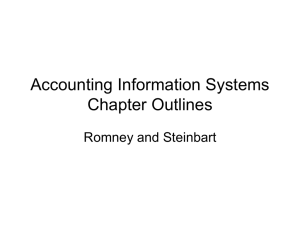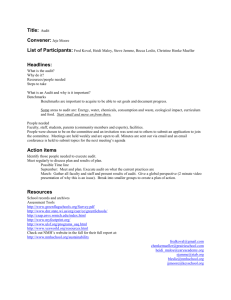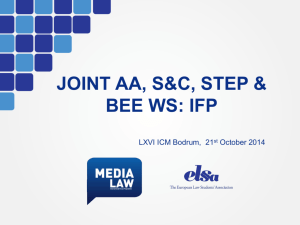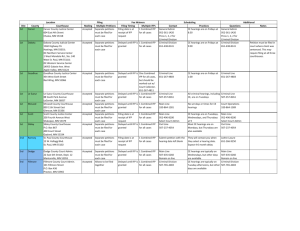Call for Research Proposals - Institute for Fraud Prevention
advertisement
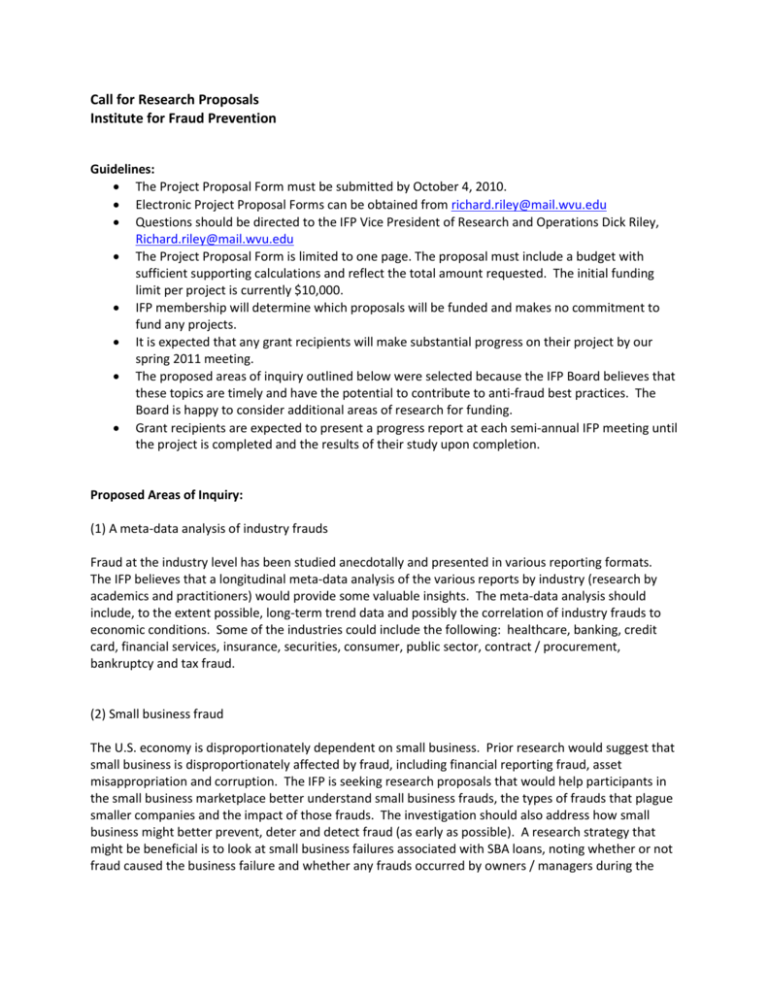
Call for Research Proposals Institute for Fraud Prevention Guidelines: The Project Proposal Form must be submitted by October 4, 2010. Electronic Project Proposal Forms can be obtained from richard.riley@mail.wvu.edu Questions should be directed to the IFP Vice President of Research and Operations Dick Riley, Richard.riley@mail.wvu.edu The Project Proposal Form is limited to one page. The proposal must include a budget with sufficient supporting calculations and reflect the total amount requested. The initial funding limit per project is currently $10,000. IFP membership will determine which proposals will be funded and makes no commitment to fund any projects. It is expected that any grant recipients will make substantial progress on their project by our spring 2011 meeting. The proposed areas of inquiry outlined below were selected because the IFP Board believes that these topics are timely and have the potential to contribute to anti-fraud best practices. The Board is happy to consider additional areas of research for funding. Grant recipients are expected to present a progress report at each semi-annual IFP meeting until the project is completed and the results of their study upon completion. Proposed Areas of Inquiry: (1) A meta-data analysis of industry frauds Fraud at the industry level has been studied anecdotally and presented in various reporting formats. The IFP believes that a longitudinal meta-data analysis of the various reports by industry (research by academics and practitioners) would provide some valuable insights. The meta-data analysis should include, to the extent possible, long-term trend data and possibly the correlation of industry frauds to economic conditions. Some of the industries could include the following: healthcare, banking, credit card, financial services, insurance, securities, consumer, public sector, contract / procurement, bankruptcy and tax fraud. (2) Small business fraud The U.S. economy is disproportionately dependent on small business. Prior research would suggest that small business is disproportionately affected by fraud, including financial reporting fraud, asset misappropriation and corruption. The IFP is seeking research proposals that would help participants in the small business marketplace better understand small business frauds, the types of frauds that plague smaller companies and the impact of those frauds. The investigation should also address how small business might better prevent, deter and detect fraud (as early as possible). A research strategy that might be beneficial is to look at small business failures associated with SBA loans, noting whether or not fraud caused the business failure and whether any frauds occurred by owners / managers during the application for loans, during operations and/or during the bankruptcy process. The Bankruptcy Almanac may be another source of data for an examination of small business frauds. (3) An investigation of e-mail as a form of audit evidence E-mail is a critical (forensic) investigative tool. E-mail is used by investigators to provide evidence of the fraud act, concealment and conversion as well as to document intent, opportunity, motive and to fill-out other investigative gaps. E-mail is so important to the litigation process that the U.S. has passed ediscovery laws that required companies to retain and provide e-mail and other electronic evidence during civil lawsuit adjudication. The IFP would like an objective and reasoned analysis of the potential benefits, strengths, weaknesses and concerns with auditors having access to e-mail during the audit process. E-mail have been successfully used in some industries to monitor (audit) activity. A current example includes monitoring securities traders for illegal trading activities. The analysis should consider not only company-based electronic communication, including instant and text messaging, but also personal communications channels and devices. (4) An investigation of interviewing as a form of audit evidence Interviewing is a critical investigative tool. Interviewing is used by investigators to provide evidence of the act, concealment and conversion as well as to document intent, opportunity, motive and to fill-out other investigative gaps. Interrogation techniques, or an admission-seeking interview, are also extensively used by investigators. At least two methodologies are those of Wicklander-Zulawski and the Reid method. Interviewing, in the form of depositions, is also important in the civil litigation process. Large accounting firms recognize the benefits of interviewing, the ability of detecting deception during interpersonal communication and are expending resources to prepare auditors to conduct effective interviews. The IFP would like an objective and reasoned analysis of the benefits, strengths, weaknesses, concerns and the role of interviewing in the audit process. (5) An investigation of adding personnel with forensic skills to audit teams Much discussion has centered on the incorporation of “forensic accountants” as part of the audit team. Some firms have already chosen to make forensic professionals an integral part of the audit team whether through active participation, consulting arrangements or as a liaison to react to suspicions of material misconduct. The IFP would like an investigation of the ways in which forensic professionals are included in engagements, the relative effectiveness and an objective and reasoned analysis of the potential benefits, strengths, weaknesses and concerns with auditors incorporating forensic professionals a part of the engagement team. (6) An investigation into motivation of fraudsters Little research exists on the dimensions comprising the fraud triangle (or diamond). The IFP is particularly interested in research projects which address the motivation of the fraudster and better understanding how personality traits, intelligence, culture etc. help better understand how a trusted party self-motivates to execute fraud. (7) An investigation of adding digital forensic tools and skills to audit teams Much discussion has centered on the incorporation of “forensic data extraction and analysis tools and skilled professionals” as part of the audit team. Some firms have already chosen to make such tools and skills an integral part of the audit team whether to provide audit evidence, targeted sampling, or to react to suspicions of material misconduct. The IFP would like an investigation of the ways in which digital forensic tools, techniques and personnel are included in audit engagements, the relative effectiveness and an objective and reasoned analysis of the potential benefits, strengths, weaknesses and concerns with auditors incorporating such activity as part of the audit engagement.



